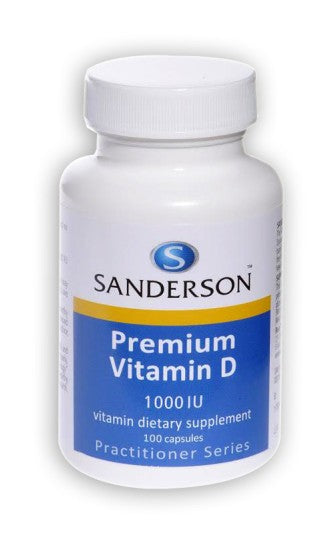Description
Vitamin D is known as the ‘sunshine’ vitamin because the body obtains this essential vitamin from the sun’s UV rays.
With increased awareness of the harmful effects of over exposure to sunlight, and promotion of reduced exposure to reduce the risk of skin cancer,
it is becoming evident that more and more people have low vitamin D levels.
The more pigment there is in the skin, the less vitamin D is produced, so dark skinned people, those who avoid the sun or women who wear veils, are at increased risk of deficiency.
There is evidence of mild vitamin D deficiency in younger adults, particularly during winter.
Vitamin D is important for building and maintaining healthy bone mass & density; it supports the role of Calcium in lowering the risk of osteoporosis.
May reduce muscular weakness in the elderly thus reducing the risk of falls.
May reduce risk of low bone mineral density in people with digestive disorders.
Increasing volumes of research highlight the importance of Vitamin D in immune system modulation.
Vitamin D supports healthy birth weight when taken during pregnancy.
Enhances mood in healthy subjects during winter. (Seasonal Affective Disorder)
The more pigment there is in the skin, the less vitamin D is produced, so dark skinned people, those who avoid the sun or women who wear veils, are at increased risk of deficiency.
There is evidence of mild vitamin D deficiency in younger adults, particularly during winter.
Vitamin D is important for building and maintaining healthy bone mass & density; it supports the role of Calcium in lowering the risk of osteoporosis.
May reduce muscular weakness in the elderly thus reducing the risk of falls.
May reduce risk of low bone mineral density in people with digestive disorders.
Increasing volumes of research highlight the importance of Vitamin D in immune system modulation.
Vitamin D supports healthy birth weight when taken during pregnancy.
Enhances mood in healthy subjects during winter. (Seasonal Affective Disorder)
